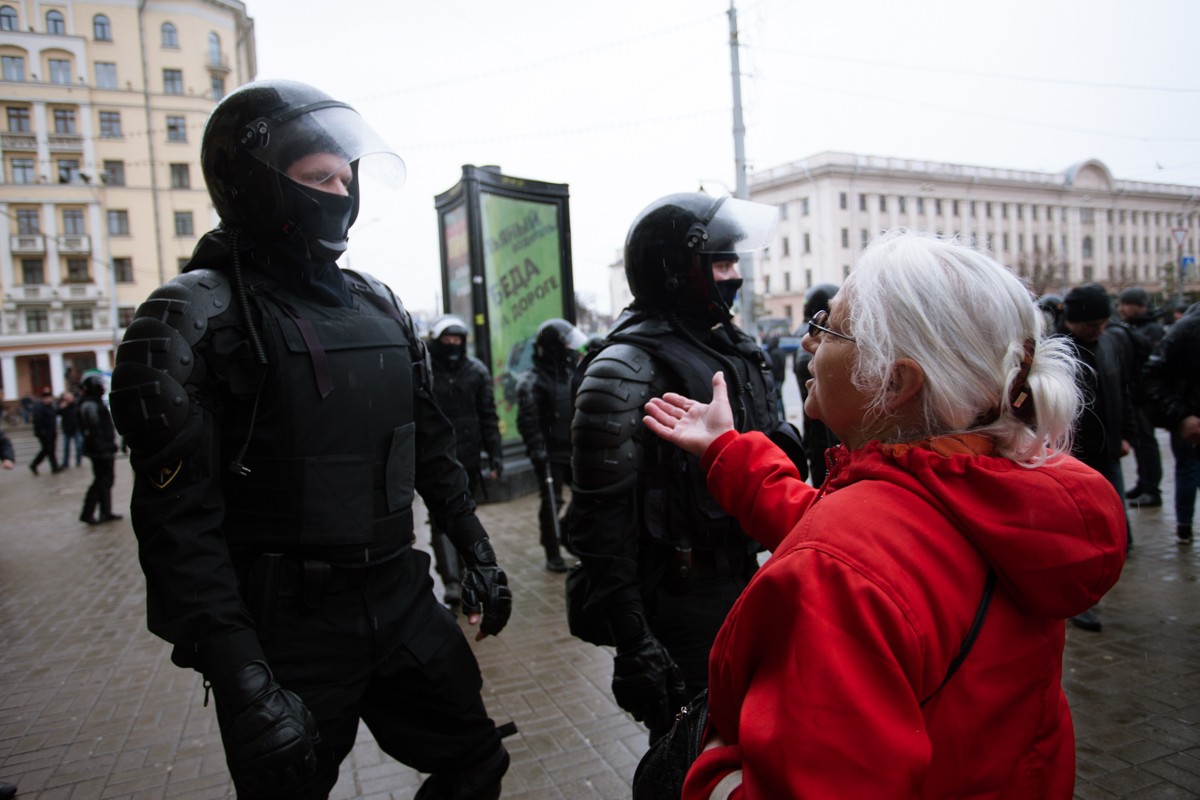Belarusian authorities manoeuvre between repression and liberalization to retain dialogue with Western capitals
 The situation has not changed
The situation has not changed

Yet Minsk has not decided on the “patriots’ case” and is attempting to break new grounds in relations with the West. Meanwhile, Brussels is ready to lower cooperation levels with the Belarusian authorities in anticipation of new political prisoners to appear after the trial against former White Legion activists, irrelevant of the charges, either preparation for riots, or creation of illegal armed groups, or any other. Minsk is unlikely to cross the red line in bilateral relations with the West and new political prisoners are unlikely to appear in Belarus.
The harsh clampdown on protests and arrests this spring in Belarus are unlikely to lead to new moves by the European Union, however, the EU would closely monitor ‘some investigations’, including the ‘patriot’s case’ aka the ‘White Legion’ case.
According to human rights defenders, 17 people remain in custody, of which 16 are former members of the White Legion and one supporter of Statkevich-led the Belarusian National Committee, Sergei Kuntsevich. The law enforcement has been releasing former activists of the White Legion and members of the Patriot Club, most likely in order to mitigate criticism from Western capitals. Amid Minsk Dialogue expert conference with the participation of Belarusian and EU officials, the authorities released from custody head of the Bobruisk “Patriot” Club Nikolai Mikhalkov. In addition, the Belarusian leadership expects to ease some tension by demonstrating greater openness to a dialogue with civil society on human rights issues. For instance, for the first time the Belarusian authorities and human rights defenders held consultations on Belarus’ fifth periodic report to the UN Human Rights Committee.
The Belarusian leadership has attempted to mitigate the West’s attitude towards the criminal prosecution against former activists of the “White Legion” by adding charges of creating an ‘illegal armed formation’ to ‘preparing for mass riots’ charges.
Apparently, Minsk also gains from speculations about possible disagreements among the executives – supporters of stronger ties with Russia, and “pro-Western” reformists lead by Foreign Minister Makei. That said, the Presidential Administration and President Lukashenka have full control over the foreign policy agenda and the law enforcement.
Overall, Minsk is determined to develop relations with Western capitals. The Belarusian authorities are likely to take controversial actions, i.e. to demonstrate the desire for liberalization in some areas and occasionally tighten repressions against the opponents, however without creating new political prisoners.
Subscribe to our newsletter




Situation in Belarus
Constitutional referendum: main consequences


 Video
Video
How to count the political prisoners: are the new criteria needed?


 Video
Video
Paternalism In Decline, Belarusian Euroscepticism, And The Influence Of Russia


 Video
Video












